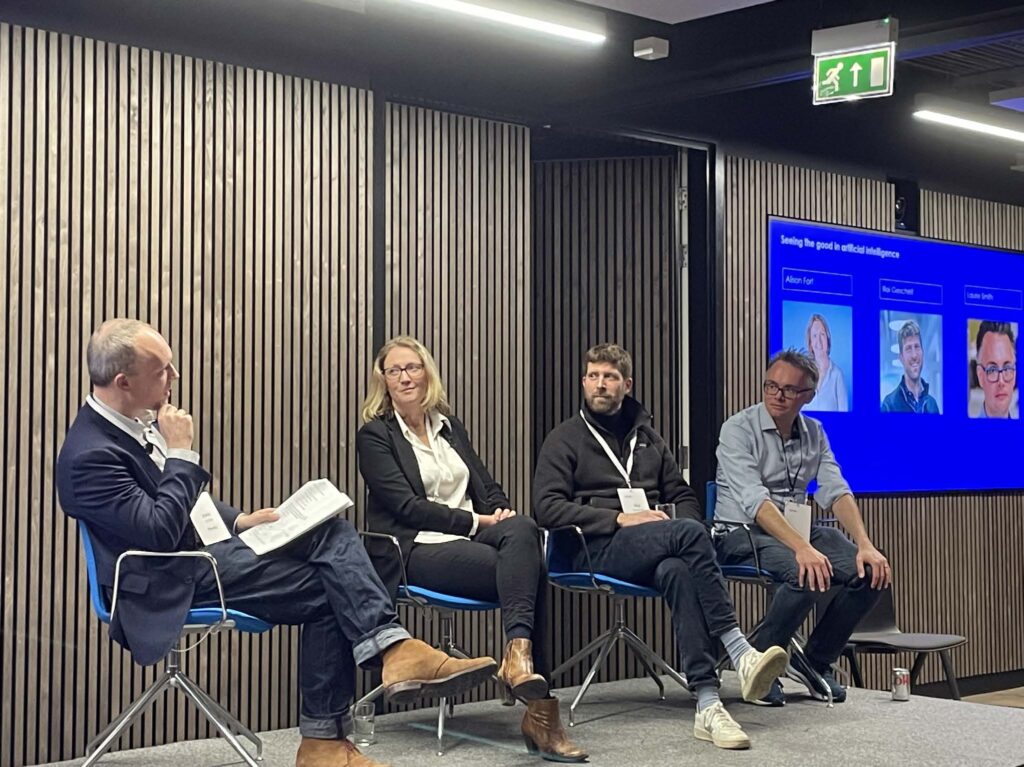Seeing the Good in AI
AI enabled opportunities for Impact VCs:
Nesta Impact Investments provides capital to early stage mission-led tech ventures raising Seed to Series A rounds. We invest to develop sustainable, scaleable and innovative products and services that benefit people and the planet. We invest alongside Nesta’s Mission themes, in companies that work towards reducing carbon emissions; tackling obesity, and reducing the educational attainment gap.
AI cuts across all of our investment themes, and we were delighted to be able to co-host an ImpactVC event at Nesta bringing people together to discuss what the AI enabled opportunities are for impact investing.
AI is still a very young technology, and a number of things are still unclear:
- Where will it have its greatest impact, and where is the greatest potential for social gain. Health and education have clear promise, but what should we be particularly excited about.
- How can the risk of AI be mitigated, especially around issues such as bias, reliability, explainability, and privacy, as well as broader effects on employment, human connection, and the national political conversation.

John Loder, Nesta Impact Investments: Alison Fort, Katapult Foundation: Illai Gescheit, Siemens Energy Ventures: Laurie Smith, Nesta Discovery.
We discussed these themes and others with our excellent panel
Some key takeaways were:
- There is a real optimism about AI for impact.
- The opportunity to cut costs dramatically in health and education, and therefore to increase access and quality is simple, even traditional, but can get lost against the more sci-fi achievements of AI.
- In the medium and long run the biggest gains from AI might come from building totally new capabilities, sectors and business rather than through efficiency gains – we can only cut to zero but we can in principle build upward forever.
- AI for scientific discovery is also very exciting in the longer term – new proteins and materials are a key opportunity where there is exciting early progress.
- Perhaps surprisingly, there is emerging evidence that AI could reduce inequality in the labour market. AI seems, so far, to help those with fewer skills, more than the established experts at the ends of their careers.
- Technical progress in the design of AI models is only part of the picture. The high quality of entrepreneurs being attracted to the space, and the amazing progress around the hardware required for AI are also of key importance, and will further accelerate progress.
- The conversation around risk is shifting from a theoretical focus on the probability of human extinction to the much more pragmatic focus on how AI can enhance our lives rather than replace us, actionable principles around implementation. More work is needed here to define actionable standards – see Alison Fort at the katapult foundation for more on this.
If you have an AI enabled investment in health, education or climate, do get in touch with us via our website: nestainvestments.org.uk